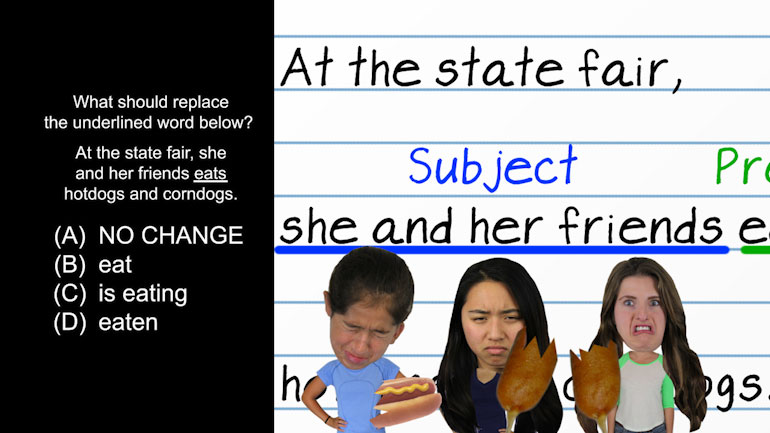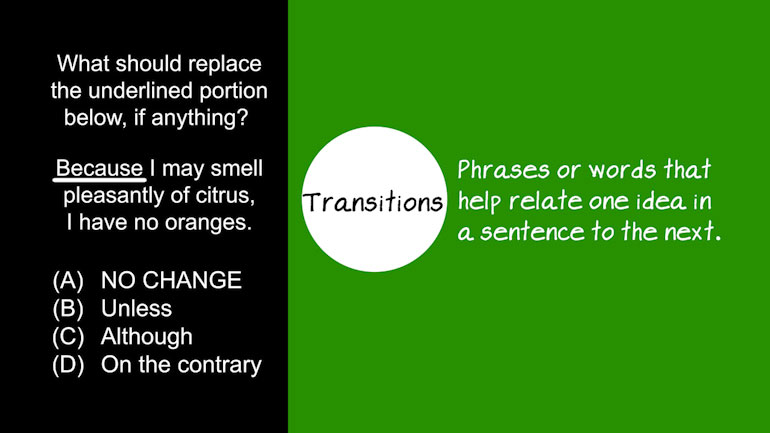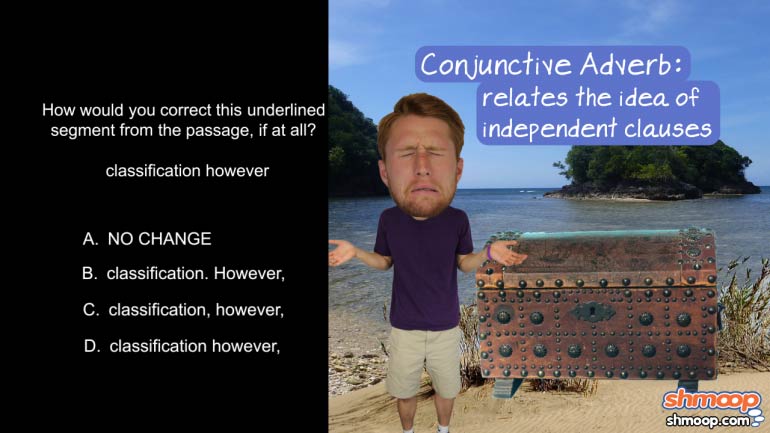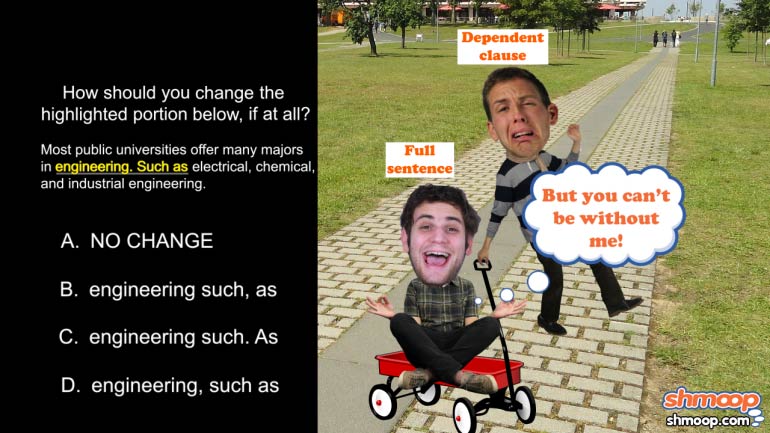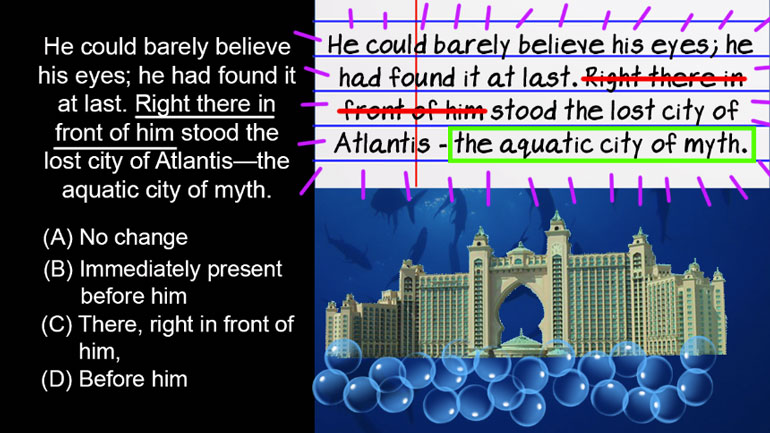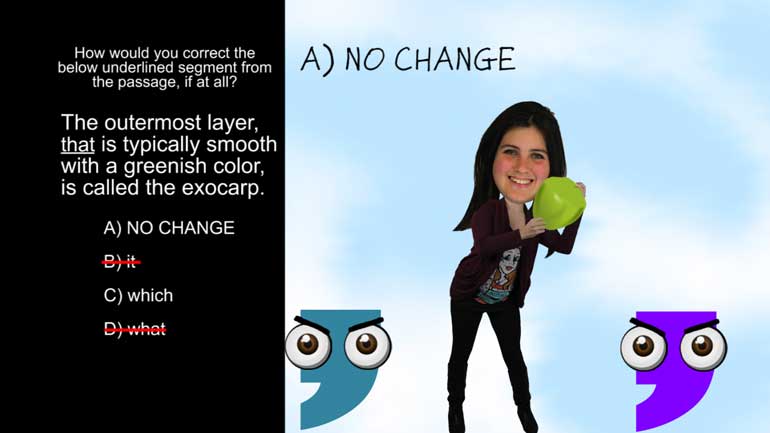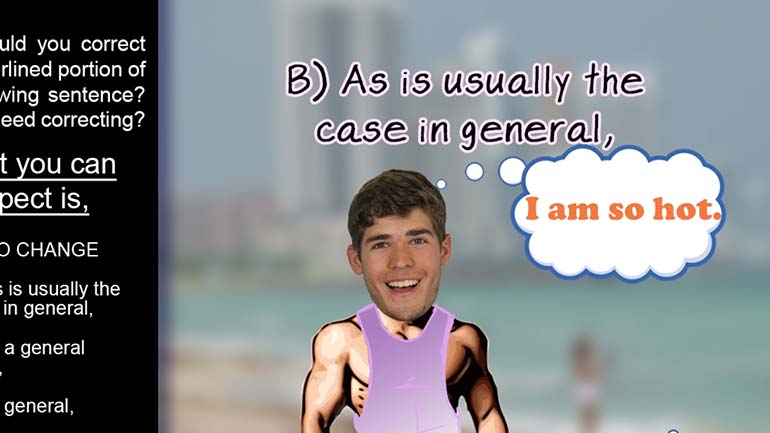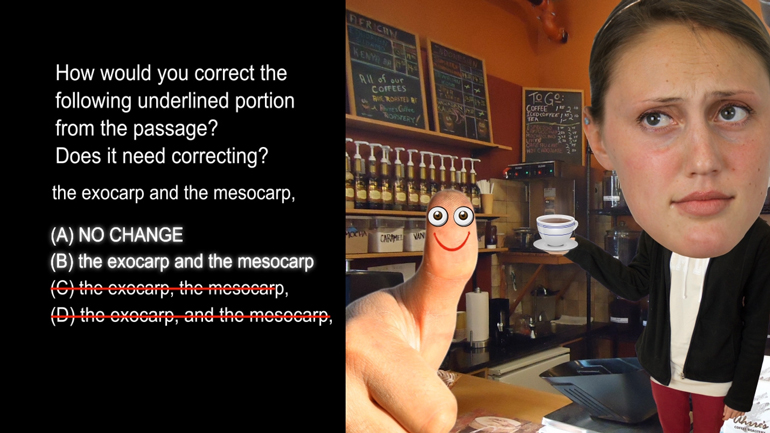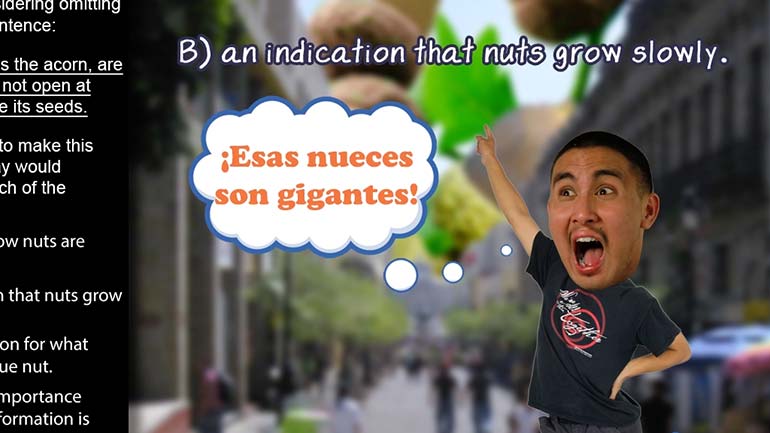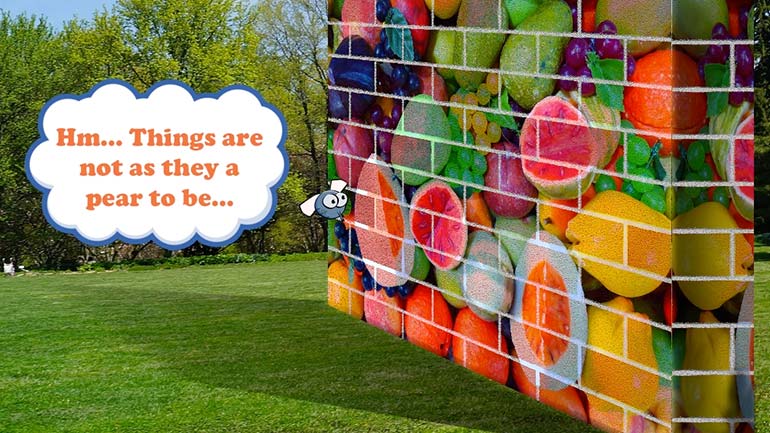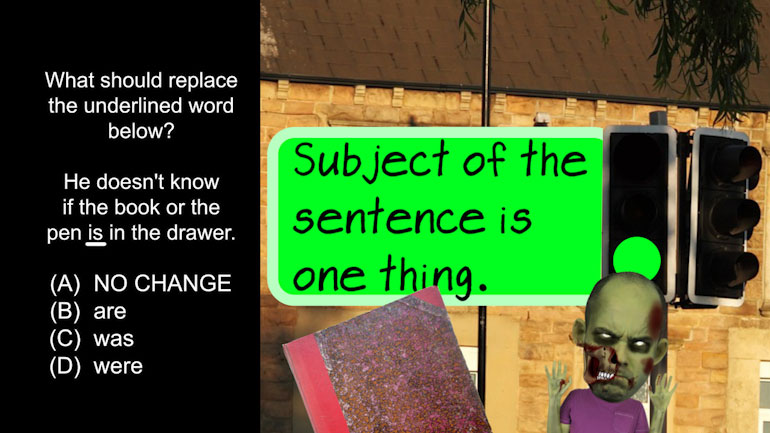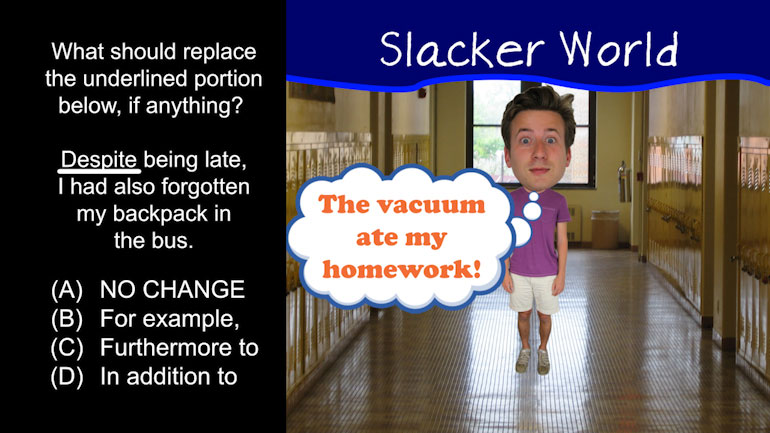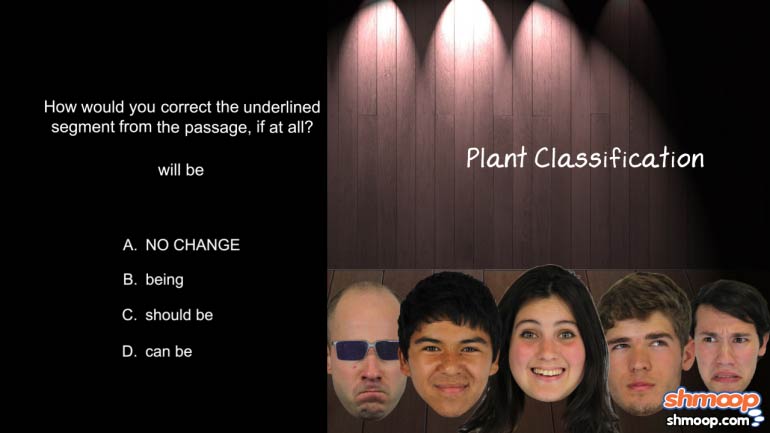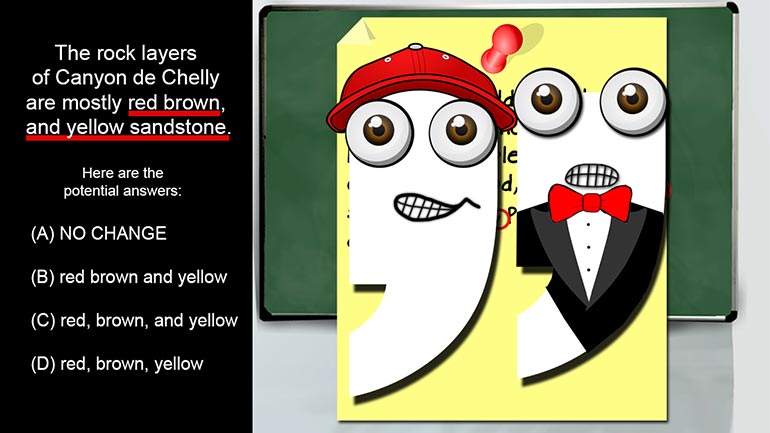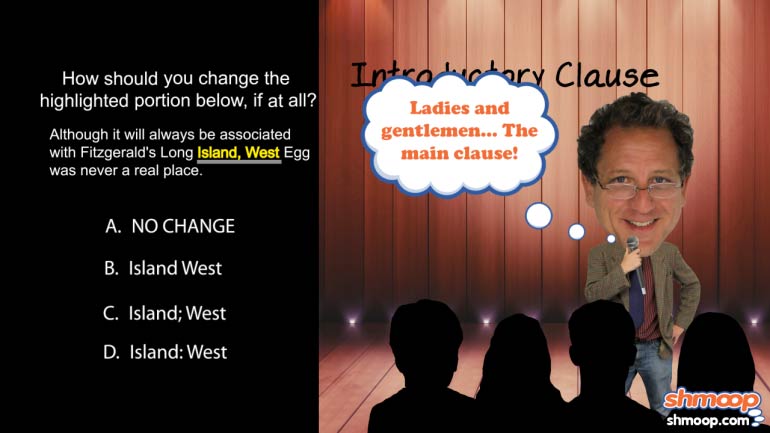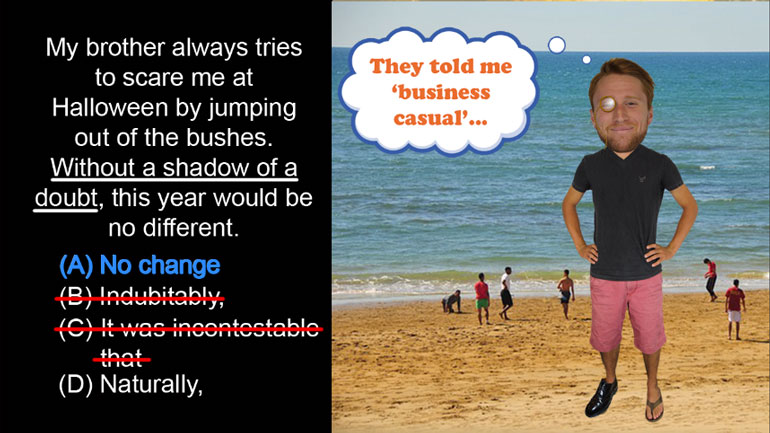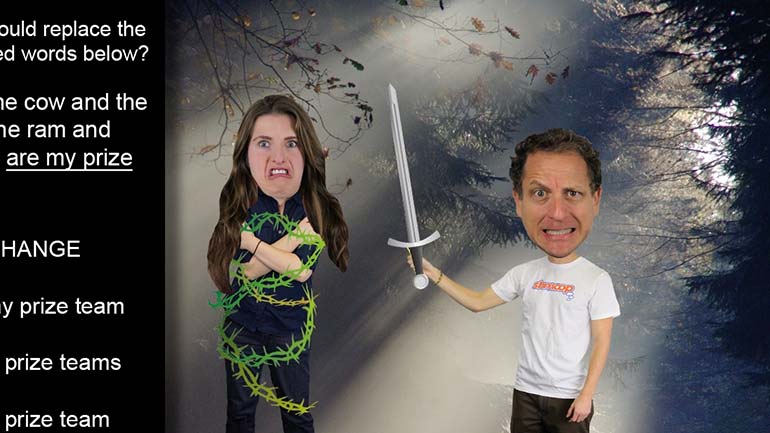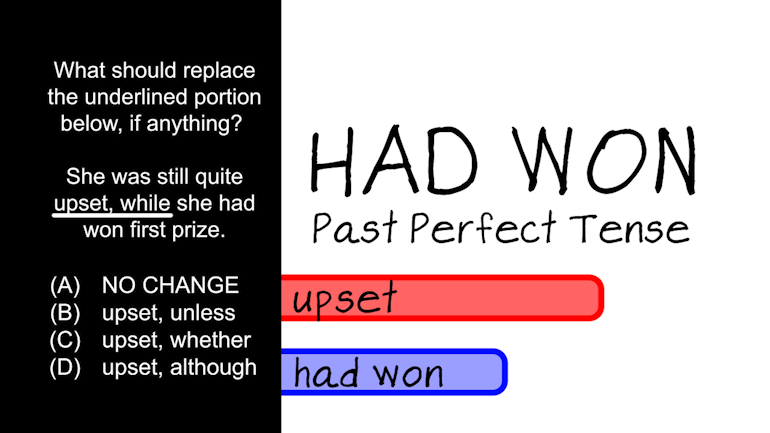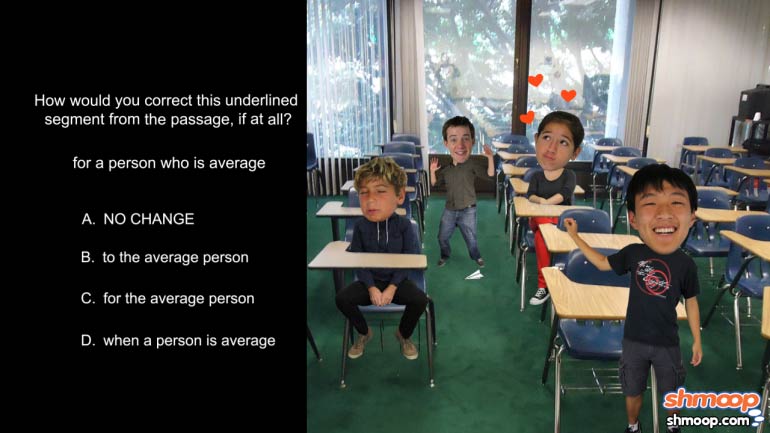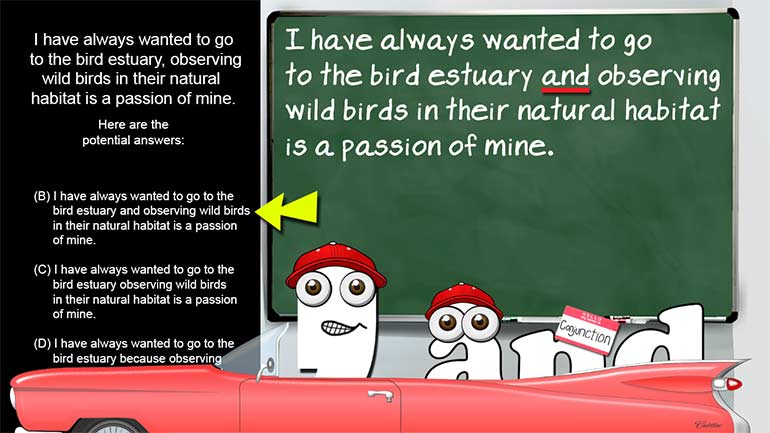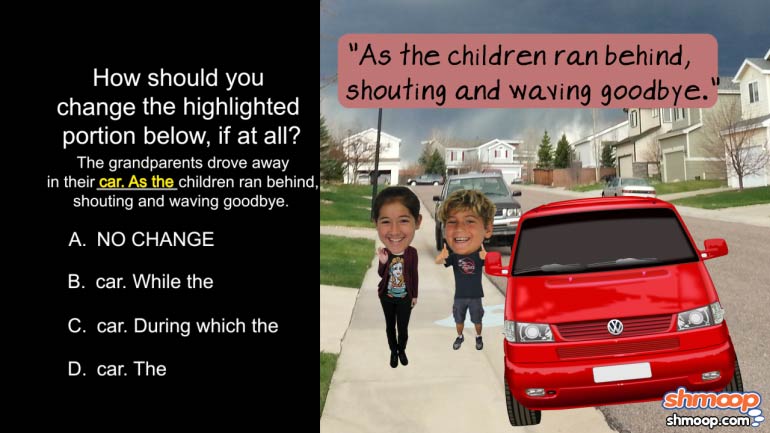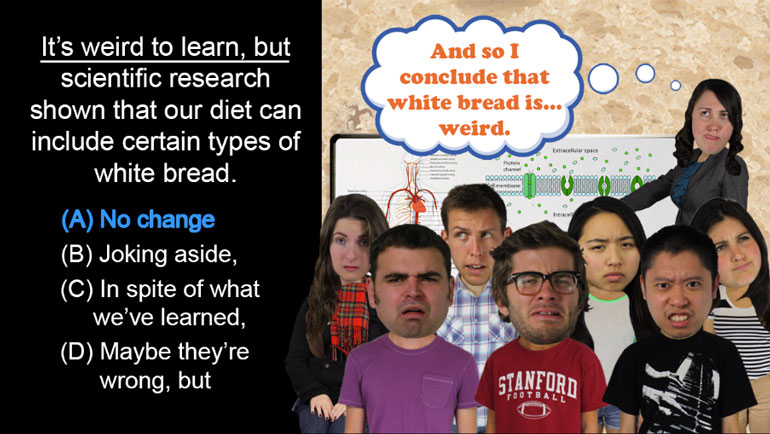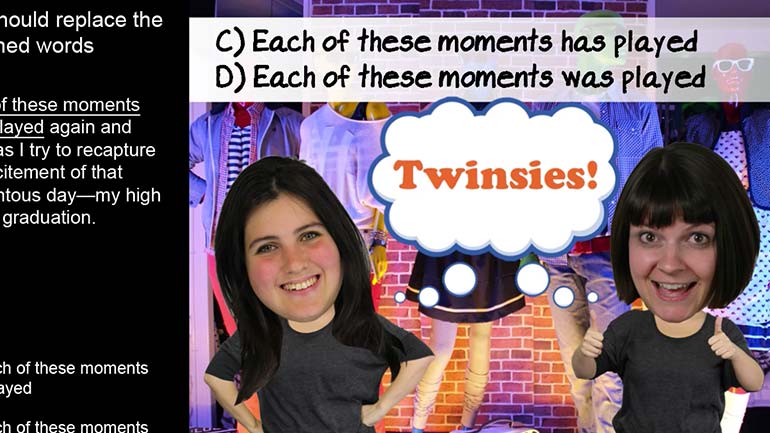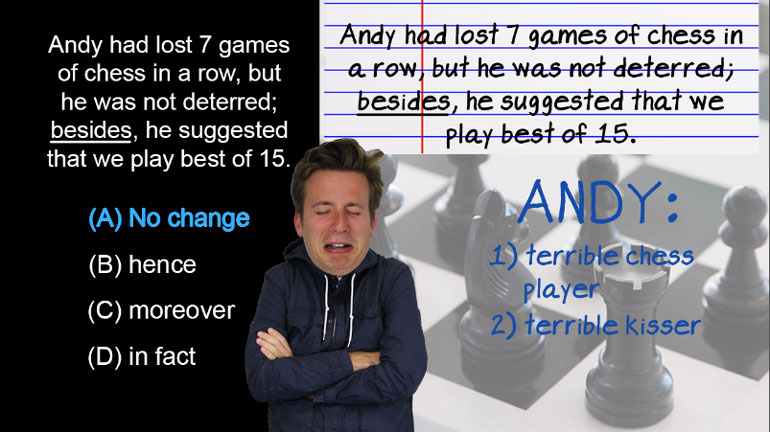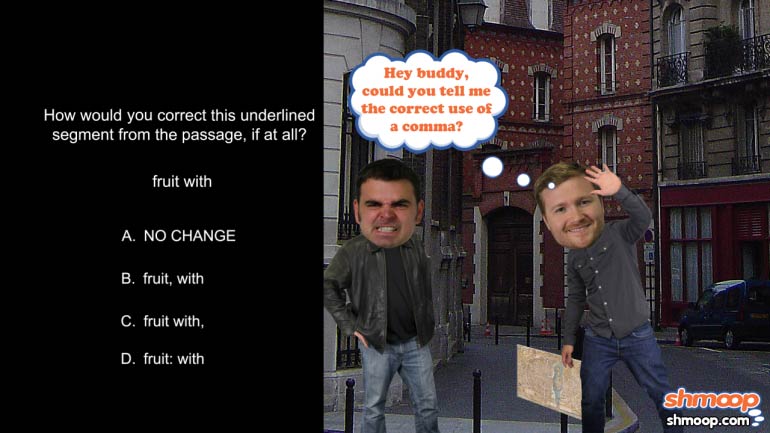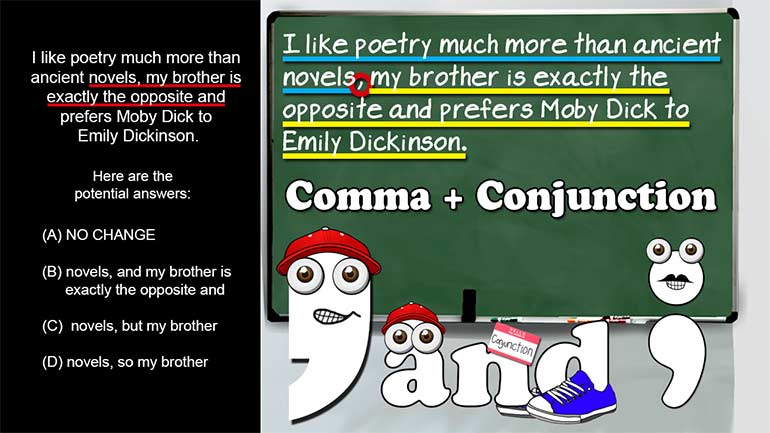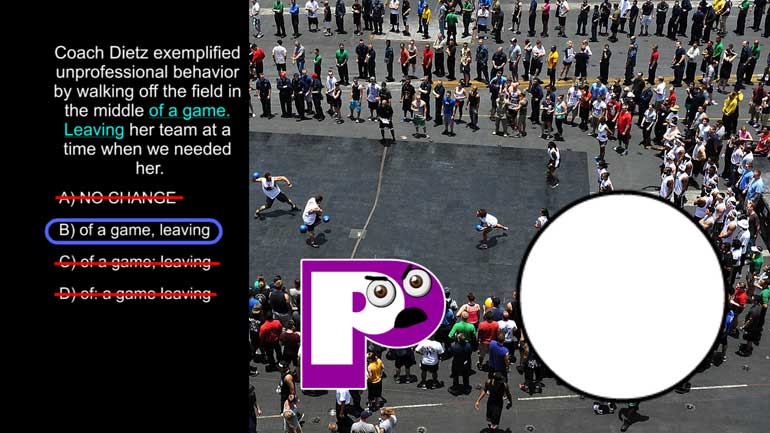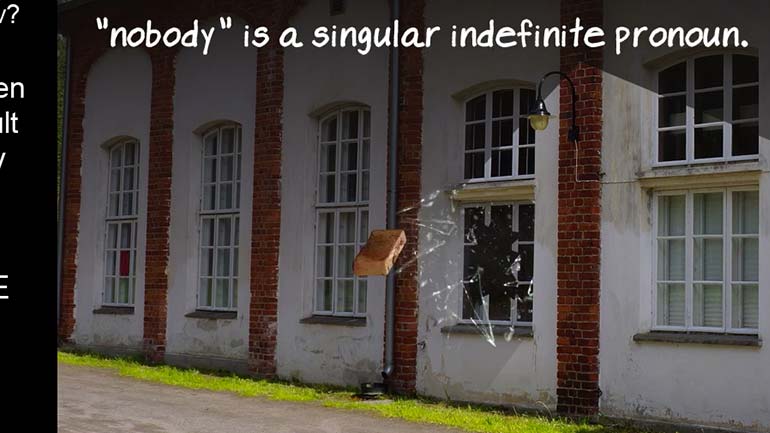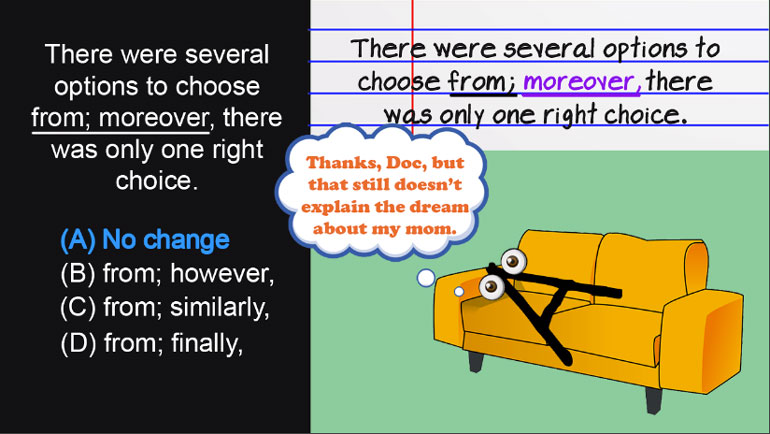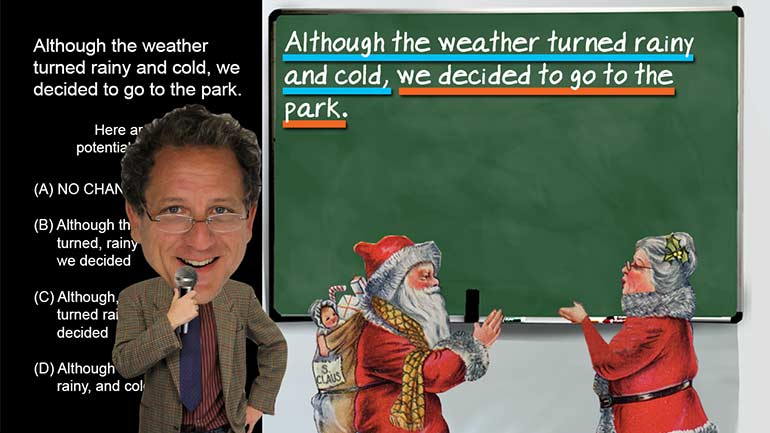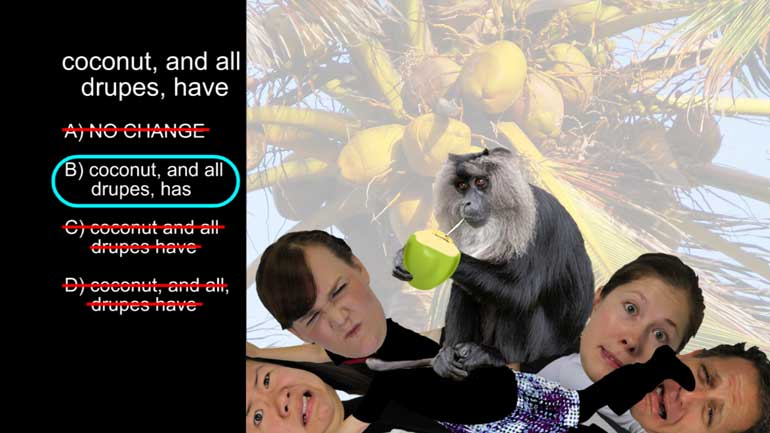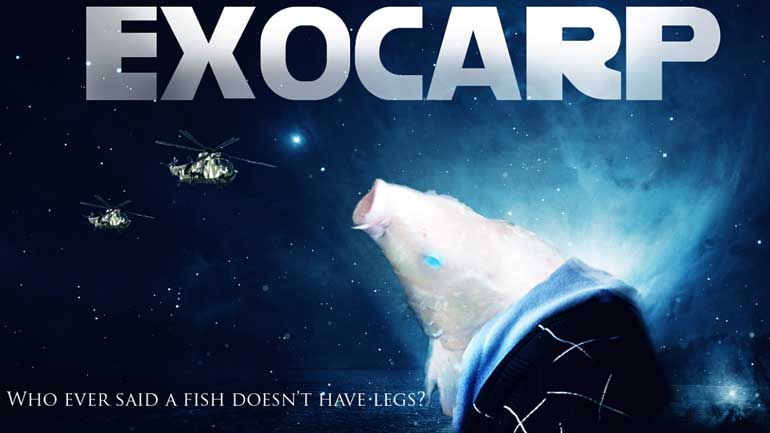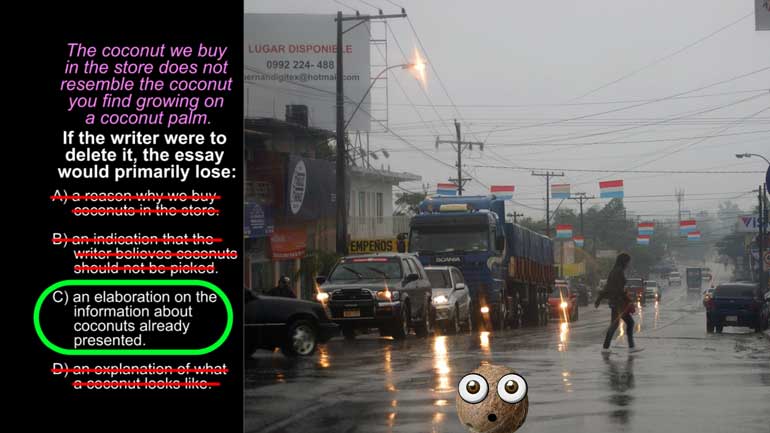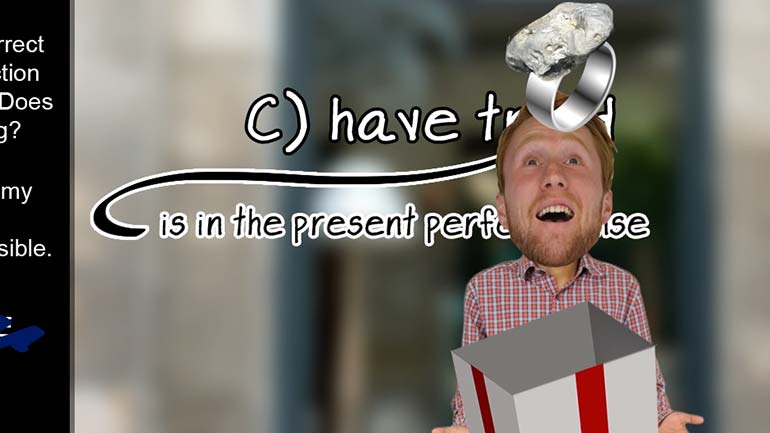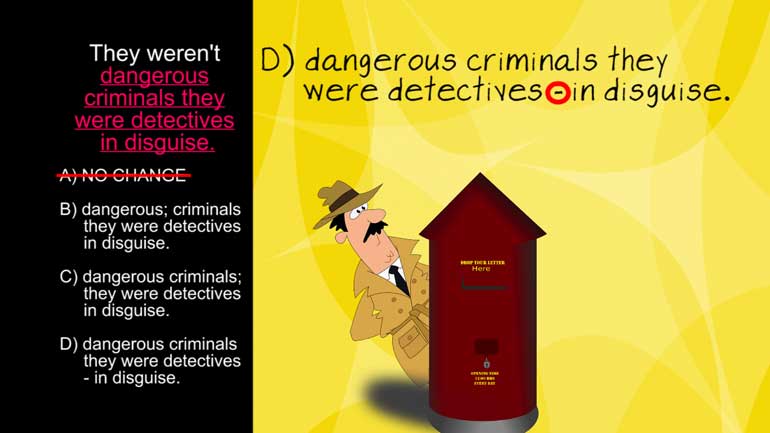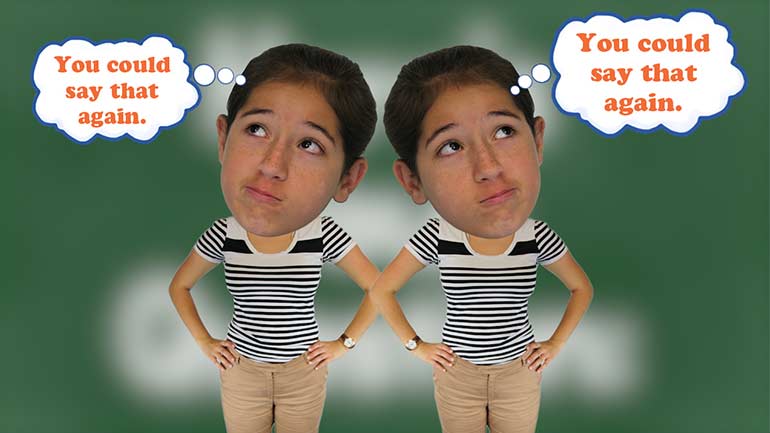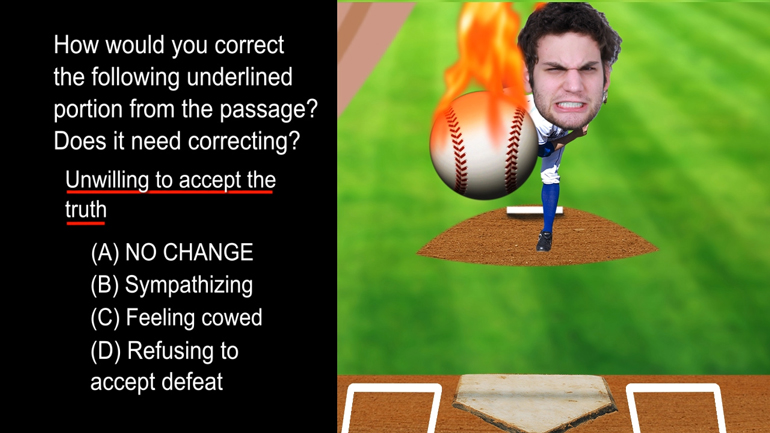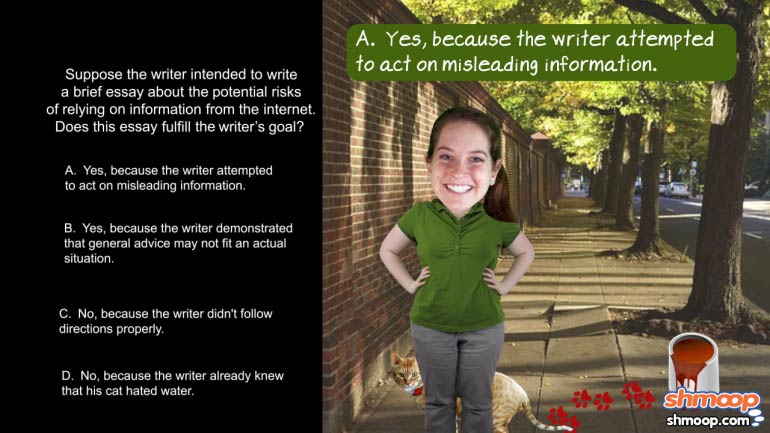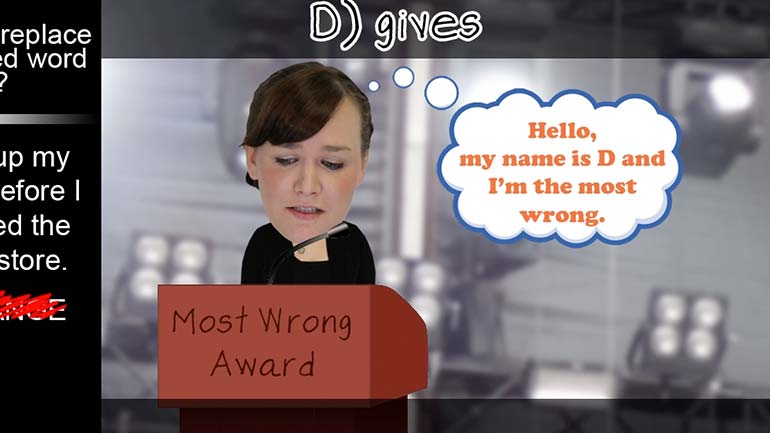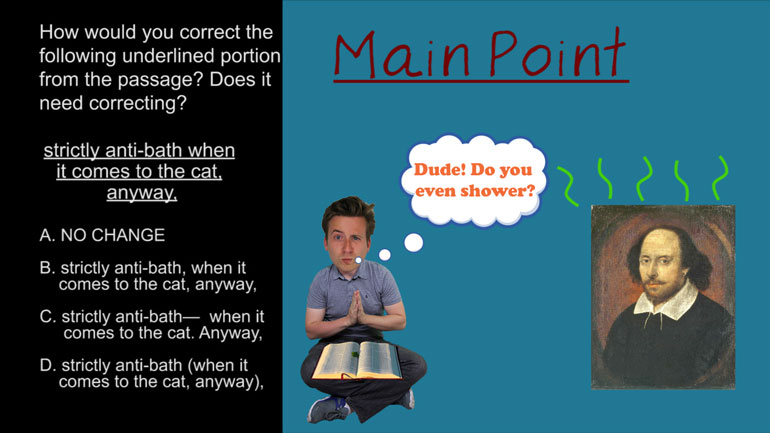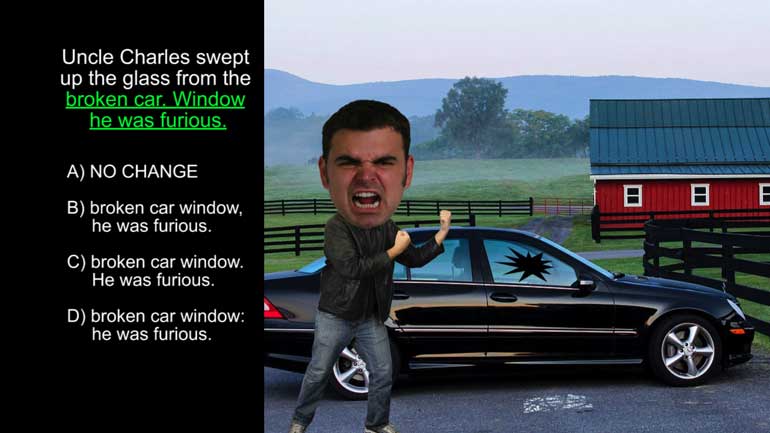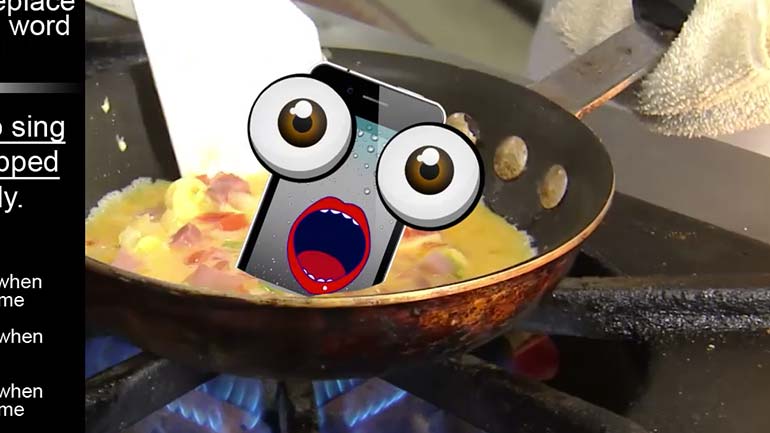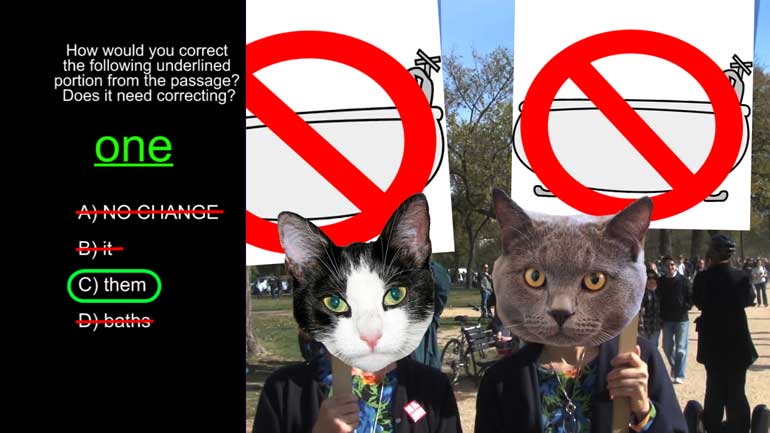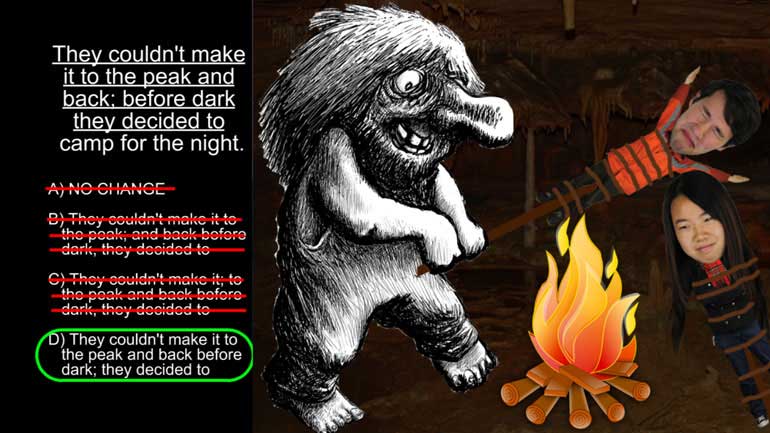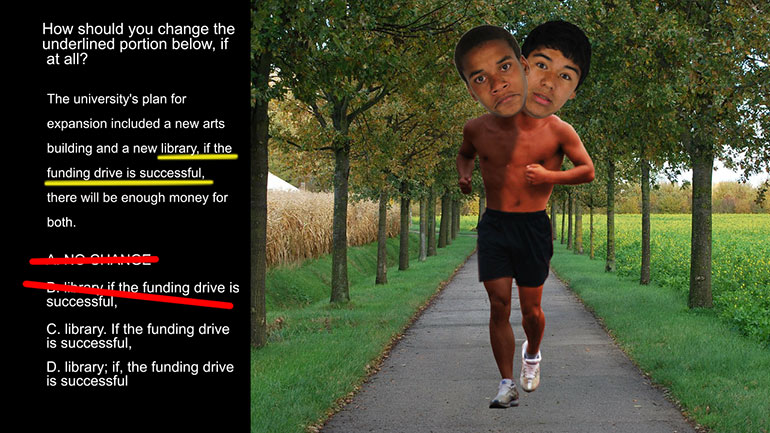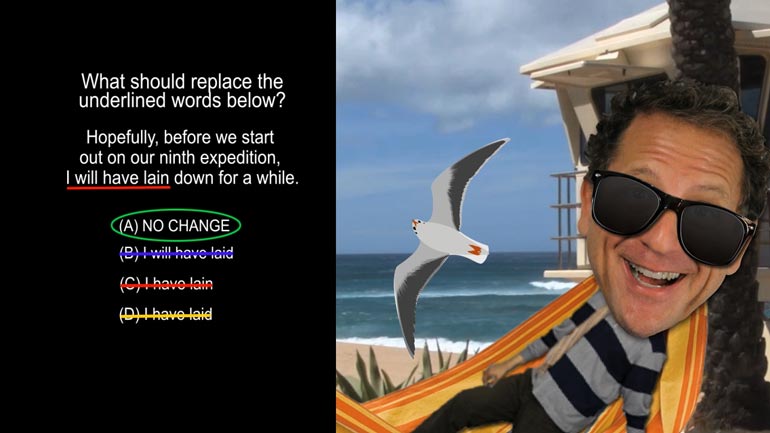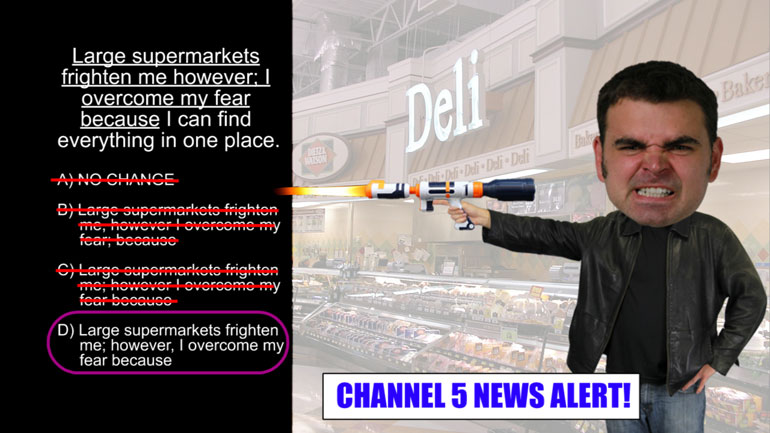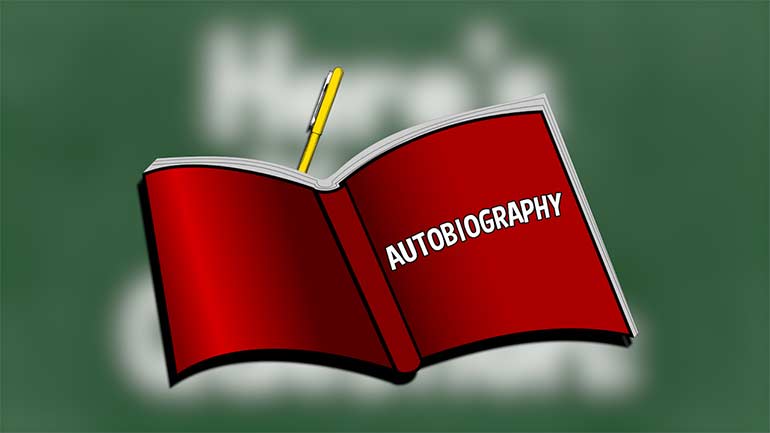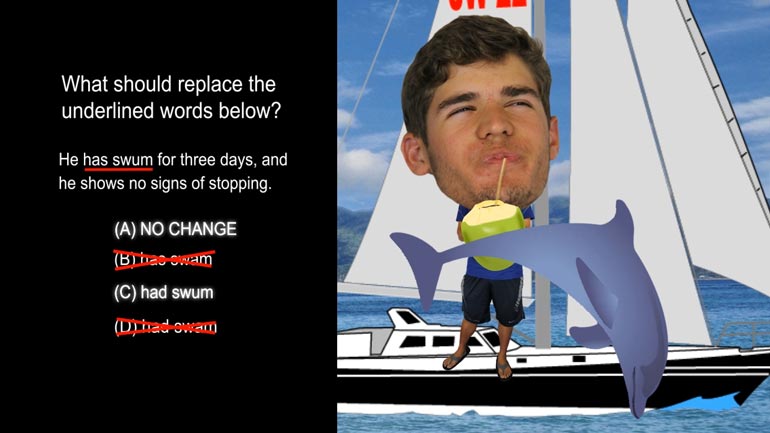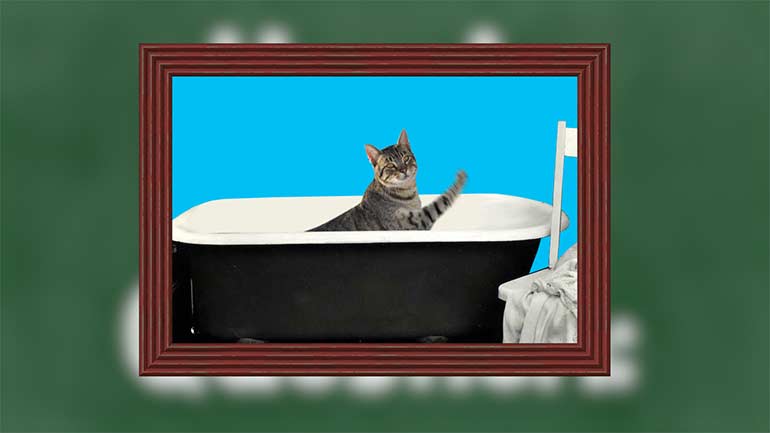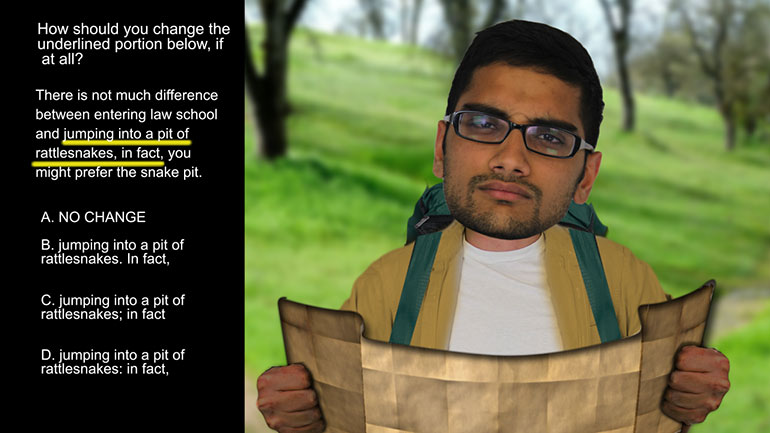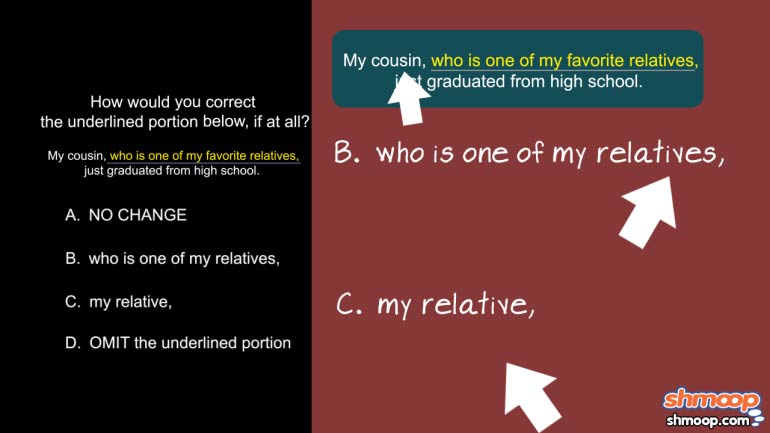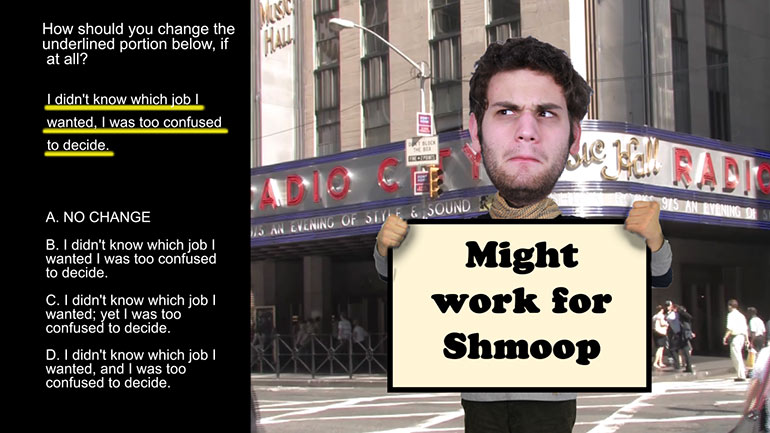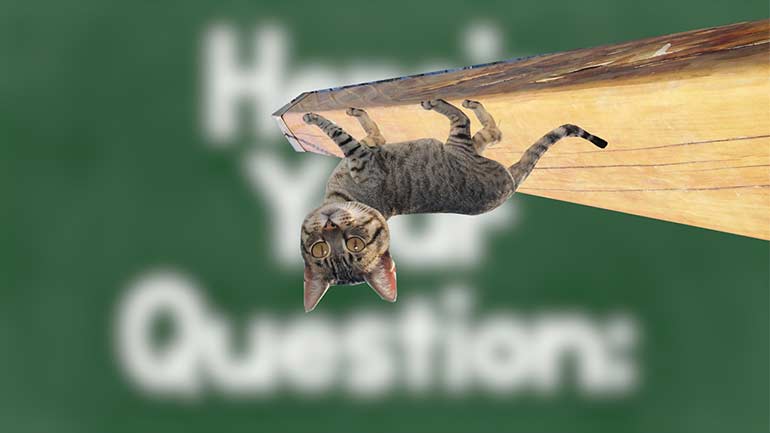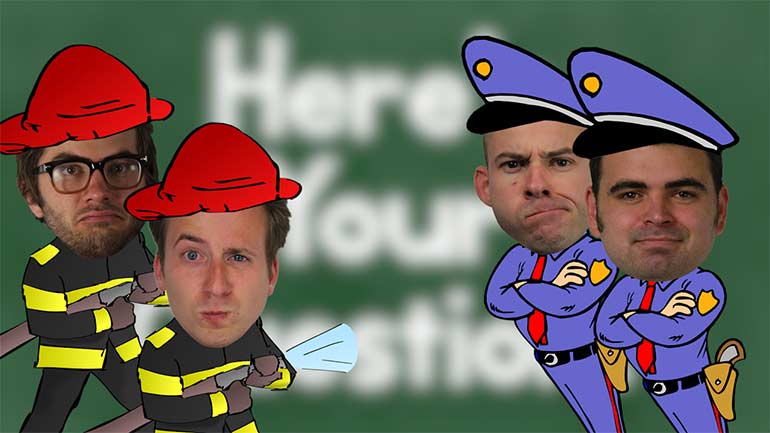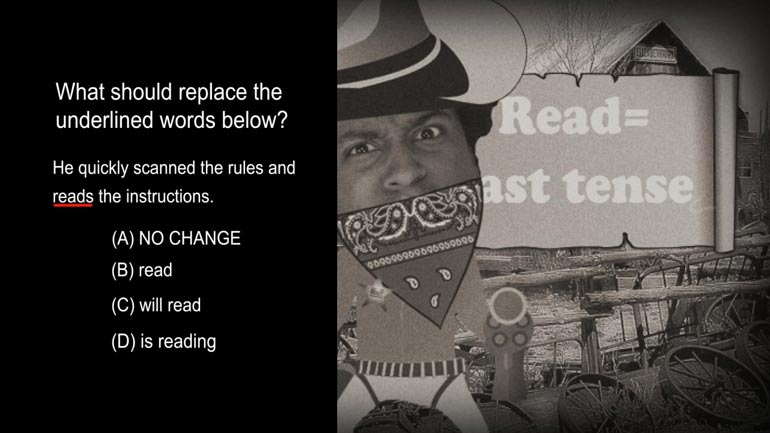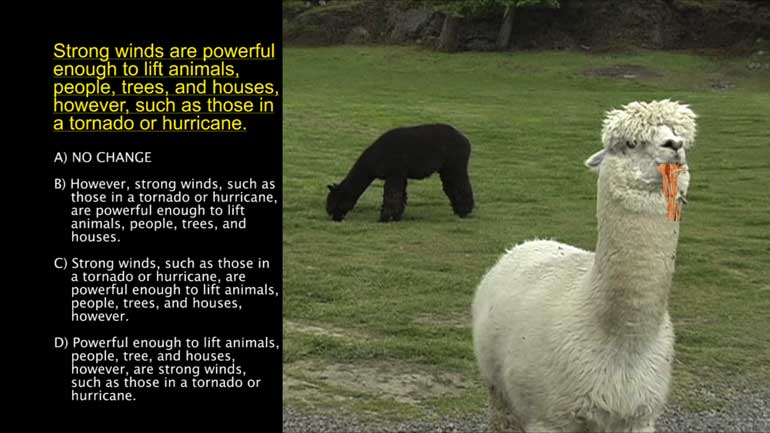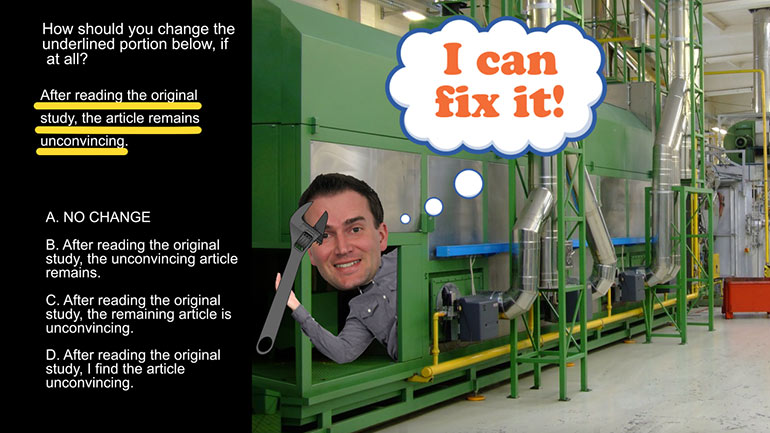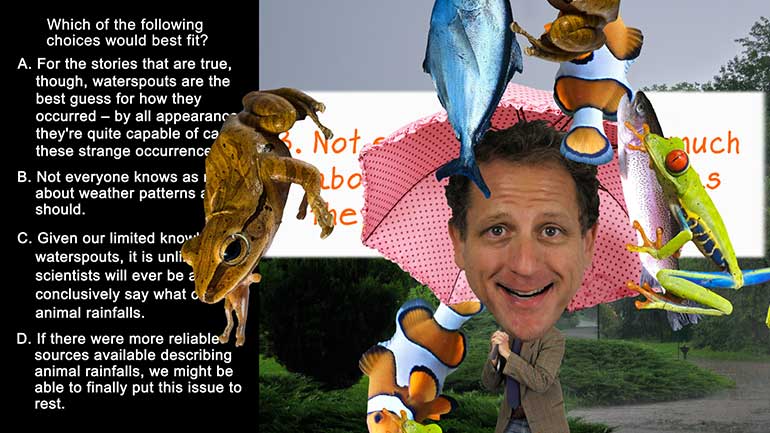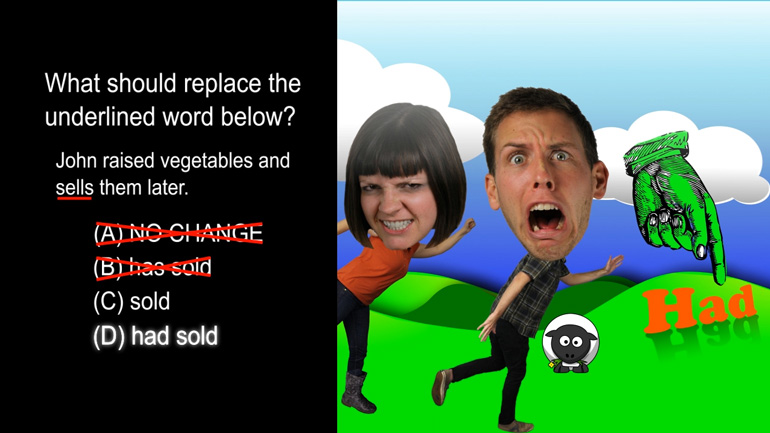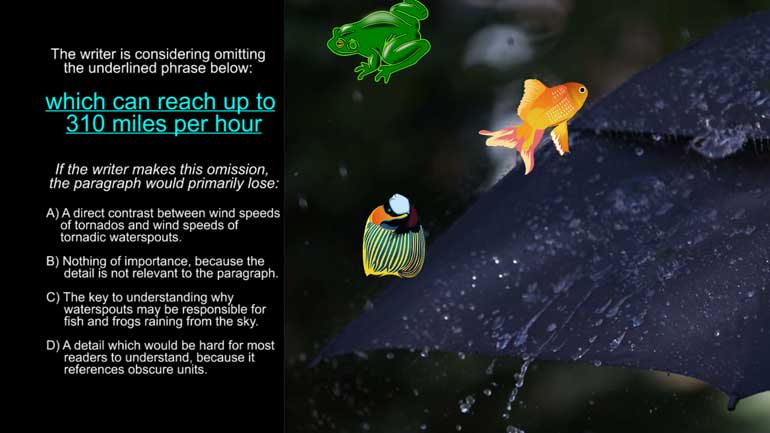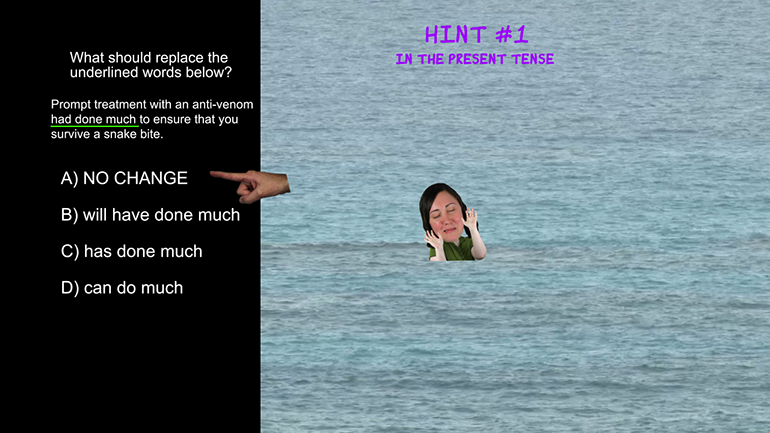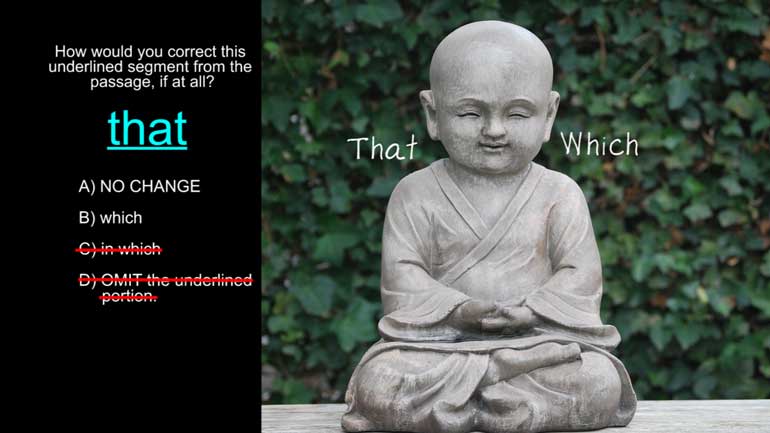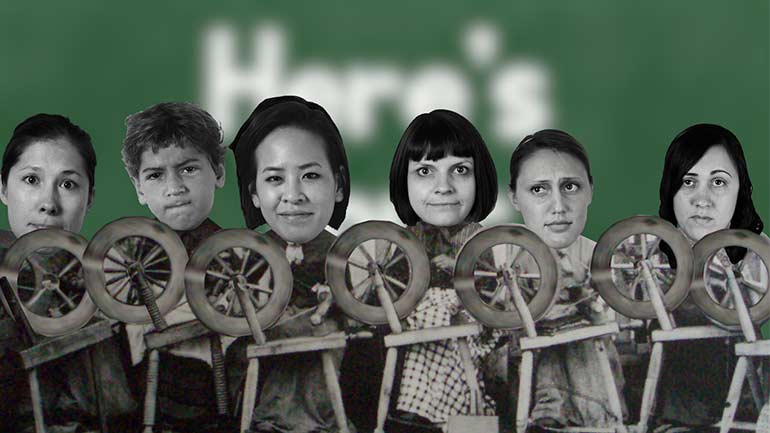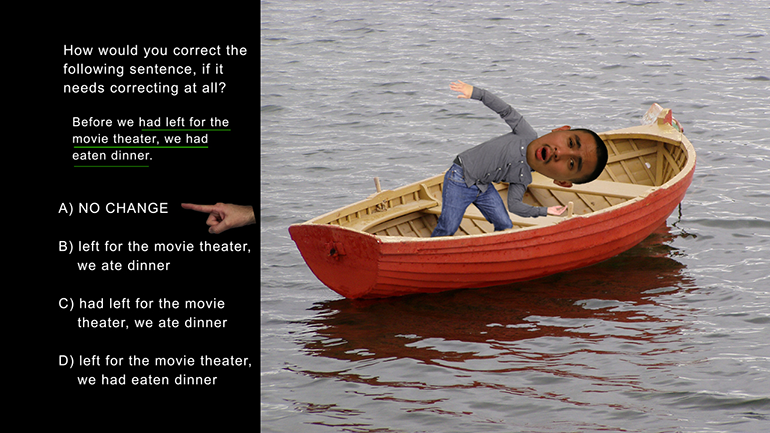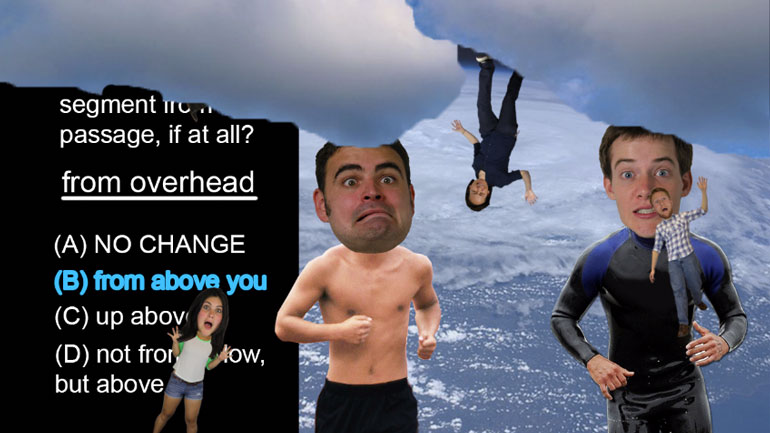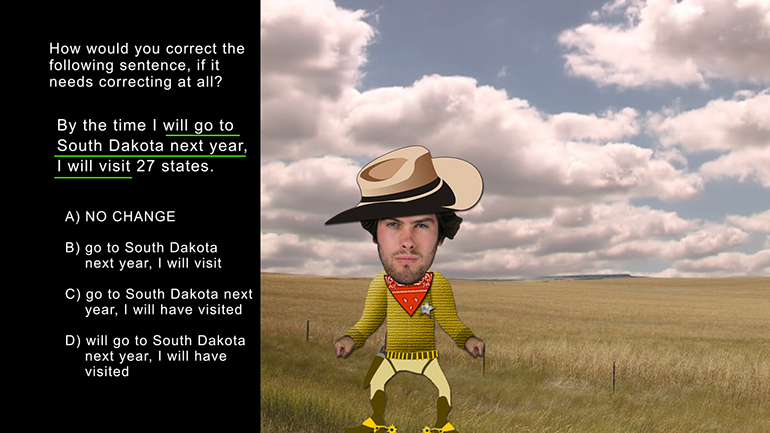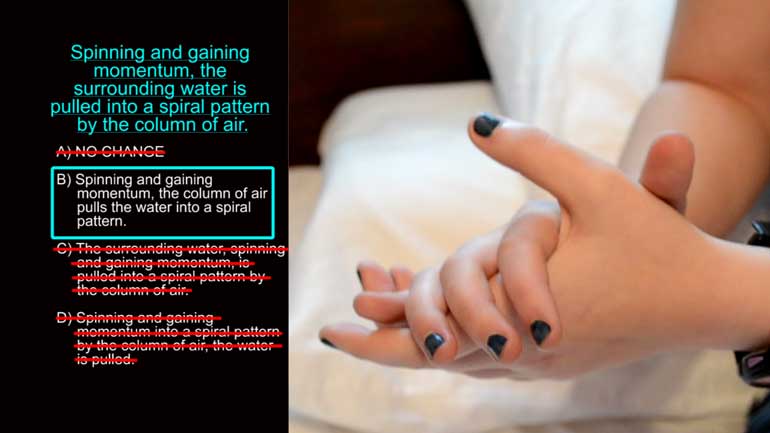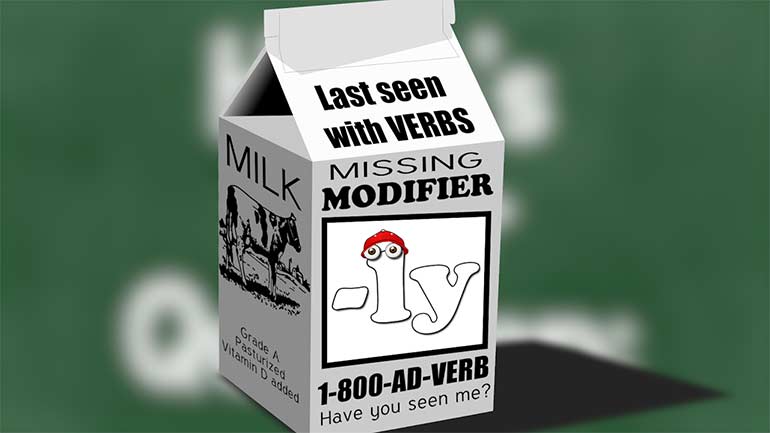ShmoopTube
Where Monty Python meets your 10th grade teacher.
Search Thousands of Shmoop Videos
ACT English Videos 157 videos
ACT English: Grammar and Usage Drill 1, Problem 1. What should replace the underlined word?
ACT English: Organization Drill 1, Problem 1. Which transition works best?
ACT English: Passage Drill Drill 1, Problem 1. Conjunctive Adverbs.
ACT English 2.3 Sentence Structure 253 Views
Share It!
Description:
ACT English: Sentence Structure Drill 2, Problem 3. What is the best way to punctuate this passage?
Transcript
- 00:03
Here's your Shmoop du jour, brought to you by run-on sentences.
- 00:07
They really just don't know when to stop.
- 00:10
How should you change the underlined portion below, if at all?
- 00:13
The university's plan for expansion included a new arts building and a new library, if
- 00:20
the funding drive is successful, there will be enough money for both.
Full Transcript
- 00:31
Let's just kick (A) to the curb right from the get-go. There's no way this big mess of
- 00:34
a sentence doesn't need any changes.
- 00:35
No worries, though. We'll find a way to clean it up.
- 00:38
"The university's plan for expansion included a new arts building and a new library" is
- 00:44
one complete independent clause, while "if the funding drive is successful, there will
- 00:50
be enough money for both" is another.
- 00:54
By connecting these two independent clauses with nothing but a comma, the original sentence
- 00:58
becomes one big nasty comma splice.
- 01:01
If possible, choice (B) makes an even bigger mess out of the situation by not putting any
- 01:06
punctuation at all between our two independent clauses.
- 01:09
We know that two independent clauses that are jammed together without a conjunction
- 01:12
or the proper punctuation are what's known as a run-on or fused sentence.
- 01:17
(D) does get one thing right by using a semicolon to connect our independent clauses.
- 01:23
This is one of the semicolon's main jobs, and here it does that job well. At times,
- 01:27
it can be a great way to fix a run-on sentence.
- 01:30
However, choice (D) lets us down by allowing a comma to run wild.
- 01:35
"If the funding drive is successful" is an introductory phrase, which sets the stage
- 01:41
for the main clause to come.
- 01:43
In this case, the phrase starts with the preposition "if," so we know that this particular introductory
- 01:49
phrase is what's known as a prepositional phrase.
- 01:53
Anyway, whenever a sentence starts with an introductory phrase, it's important to set
- 01:57
it apart with a comma to help with clarity.
- 02:00
Choice (D), however, places the comma directly after the preposition "if," rather than after
- 02:05
the phrase as a whole.
- 02:07
This, of course, is incorrect, so while it impressed us with its semicolon, (D) gets
- 02:12
disqualified for its sloppy comma use.
- 02:15
Choice (C) solves our original comma splice issue correctly by separating the two independent
- 02:20
clauses with a period.
- 02:21
Now they're each free to be themselves, without the other all up in its business all the time.
- 02:26
Like Brad and Jennifer or Ben and J-lo, some couples just aren't meant
- 02:30
to be together...
Related Videos
ACT English: Punctuation Drill 2, Problem 2. Where should the semi-colon be placed?
ACT English: Punctuation Drill 3, Problem 1. How should this sentence be changed so that it is grammatically correct?
ACT English: Punctuation Drill 3, Problem 2. How should we properly hyphenate the words in this sentence?
ACT English: Punctuation Drill 3, Problem 4. Which choice best formats this list of items?
ACT English: Punctuation Drill 2, Problem 1. Which choice of punctuation best completes the sentence?
